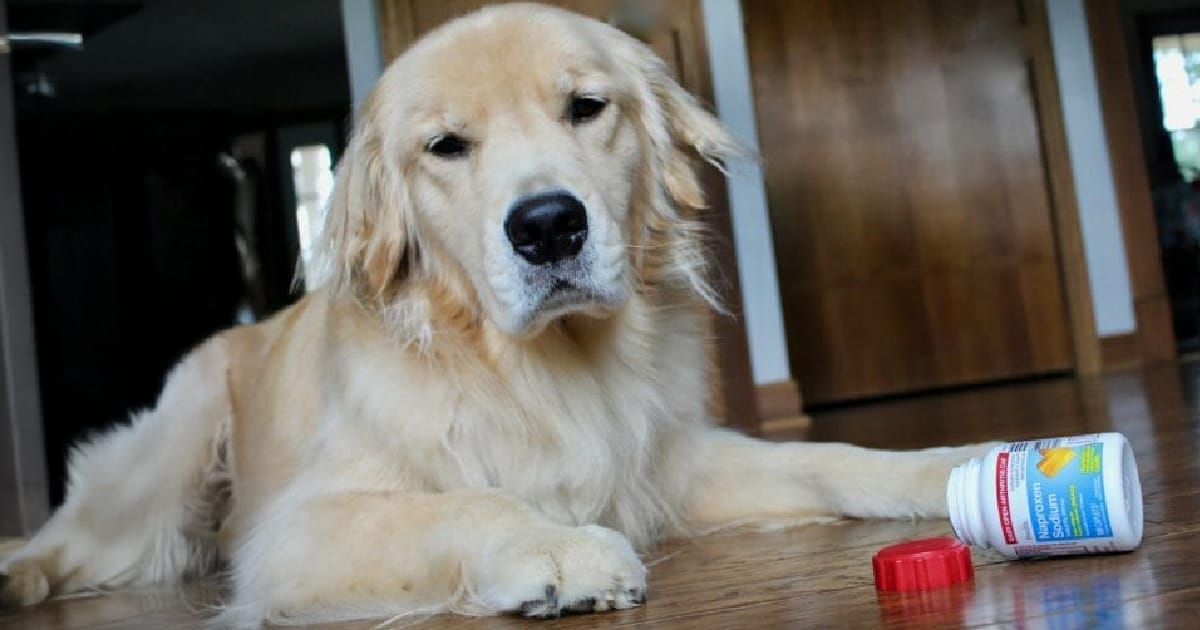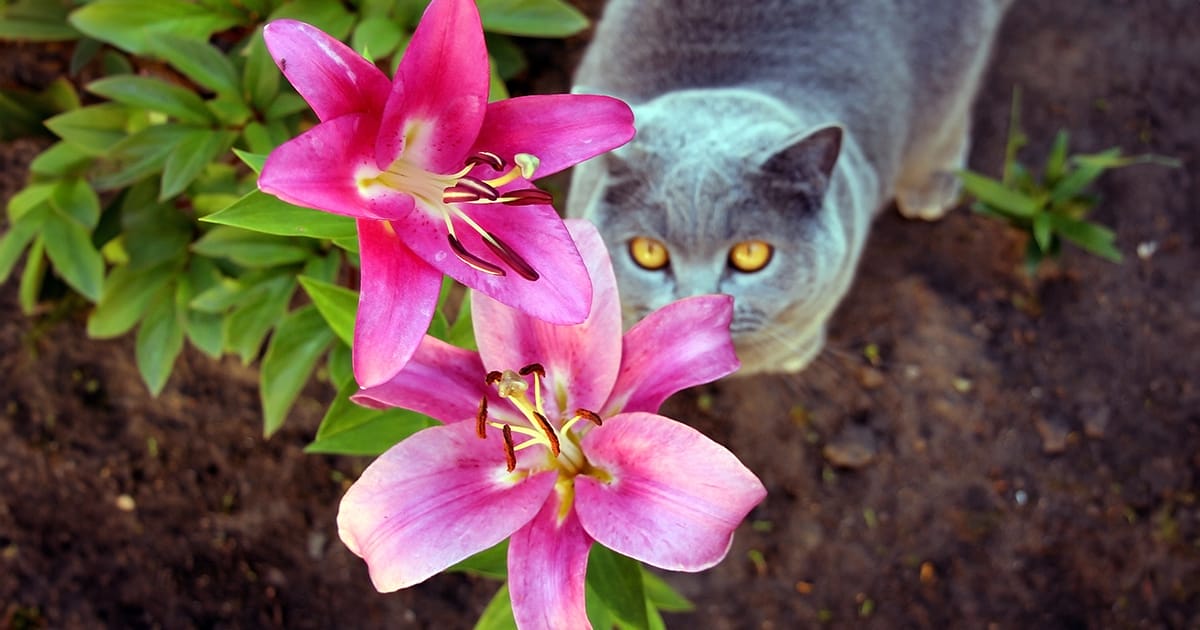
15 Surprising Pet Poisons – Keep Your Pet Safe
Common items in households can be toxic to pets. Here are 15 surprising pet poisons and how to keep your pet safe.
When it comes to keeping our pets safe, most of us are vigilant about the obvious dangers like hand sanitizer, household cleaners, and chemicals. However, there are many other items lurking in our homes that could pose unexpected risks to our pets. From common household items to children’s toys, our MedVet experts share 15 surprising pet poisons that might be in your home.
Household Chemicals Toxic to Pets
1. Antifreeze
Antifreeze contains ethylene glycol, which is highly toxic to animals, even in small amounts. Its sweet smell and taste can lure pets into drinking it. Even if you store the container safely, your pet might still encounter it. Small spills from changing fluids or a leaky radiator can leave dangerous puddles in the garage or driveway that your pet might lap up.
Another hidden danger is the puddles on the side of the road. Water that washes off driveways and streets can collect at the roadside, often containing traces of antifreeze or other automotive fluids. Always provide your pet with clean drinking water to prevent them from being tempted to drink from these potentially harmful puddles during walks.
2. Lead Paint
Many homes built before 1978 contain lead paint. Chipped paint and even dust from walls can pose serious risks to your pet. You can have your home tested for lead paint and safely remove it. Lead is also poisonous to humans, so addressing this issue helps make your home safer for everyone in your family.
Common Household Items Dangerous for Pets
3. Batteries
You already know not to give your pet a battery, but don’t overlook items they might chew on that contain batteries. Common culprits include electronic remotes and children’s toys. Your pet doesn’t need to swallow an entire battery; simply puncturing it while chewing can expose them to dangerous alkaline and acidic compounds. Keep batteries and battery-containing items out of your pet’s reach.

4. Pennies
Picking up pennies may bring good luck to humans, but not to pets. Not only are pennies a choking hazard, but those minted after 1983 also contain zinc. This heavy metal can be absorbed by your pet and cause blood disorders. When you see coins, pick them up and store them in a bank, jar, or other safe place.
5. Dryer and Fabric Softener Sheets
Dryer and fabric softener sheets smell nice and are fun to shred, making them especially tempting for some pets. However, the chemicals used in these products to remove static cling can be harmful to your pet. Even used sheets can pose a danger. Keep all laundry products stored safely or consider switching to alternatives like dryer balls.
6. Toilet Water
It might seem funny to see your pet drinking from the toilet, but toilet water is not safe for them to drink. Germs and bacteria can linger in the bowl even after human waste is flushed. Even a freshly cleaned toilet can be dangerous, as there may be residual chemicals from cleaning products. Keep the toilet lid down and provide fresh water for your pet in a safe location.
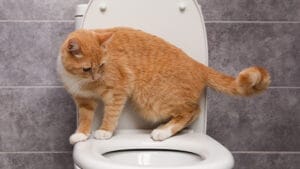
7. Potpourri
In its dry form, potpourri is a mixture of dried plants and herbs. The potential toxicity varies depending on the specific plants used. Certain plants, like lilies, are highly toxic to pets. Additionally, some potpourri contains artificial colors or scents made from various chemical compounds. Liquid and oil forms can be even more dangerous due to the presence of cationic detergents. It’s best not to leave pets unattended near any form of potpourri.
8. Playdough
This favorite childhood toy might seem safe since it is labeled as non-toxic and suitable for children’s play. However, both homemade and store-bought versions of playdough, as well as salt dough ornaments made during craft time, can be dangerous due to their high salt content. Excessive salt can lead to salt toxicity. When there is too much salt in the blood, water leaves muscles and cells to dilute the salt in the bloodstream, which can result in dangerous levels of dehydration.
Medications and Vitamins Toxic to Pets
9. Asthma Inhalers
Although asthma inhalers can be lifesaving for humans, they can be deadly for pets. If a pet chews on an inhaler and punctures the container, the entire dose of medication can be released at once, causing a dangerous overdose. The albuterol in the inhaler can dramatically increase your pet’s heart rate and lower potassium levels in the blood. To keep your pet safe, store inhalers out of reach or in a secure place, such as a zipped backpack, clutch, or handbag.
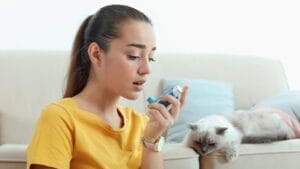
10. Over-the-Counter Medications
It’s no surprise that prescription medications and pets don’t mix well. However, over-the-counter medications can also be dangerous. Drugs like acetaminophen (Tylenol), ibuprofen (Advil and Midol), and naproxen (Aleve) are not formulated for pets, and even small amounts can be toxic. Never give your pet any human medication unless specifically directed by a veterinarian. For more information on ibuprofen toxicity in dogs, check out our in-depth blog post.
11. Vitamins
Although our pets do need certain vitamins and minerals, the supplements and multivitamins we take as humans often have concentrations that are much higher than what our pets require. Additionally, some vitamins contain xylitol, which can cause low blood sugar and liver damage in pets. Make sure to store vitamins in closed containers and out of reach of your pets.
Personal Use and Hygiene Items Toxic to Pets
12. Petroleum Jelly
Petroleum jelly is commonly found in lotions, soaps, and makeup. Scented versions of these products can be especially attractive to pets. However, the laxative properties of petroleum jelly can cause intestinal distress in your pet. To keep them safe, store these products in cabinets or drawers that your pet cannot access.
13. Toothpaste and Mouthwash
Many human oral care products contain xylitol, a sugar substitute that is dangerous for pets. Xylitol can increase insulin production, leading to dangerously low blood sugar levels. To keep your pets safe, store human oral care products out of their reach and dispose of used tubes and containers in secured trash cans. Additionally, always use toothpaste specifically made for pets when brushing their teeth.
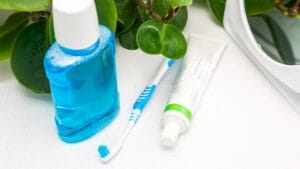
14. Essential Oils
Essential oils have gained popularity in recent years for aromatherapy, alternative medicine, and scenting home and personal care products. These oils are concentrated liquid extracts from various plants, and some can be more harmful to pets than others. Ingestion or skin exposure can cause issues. Before burning or diffusing any essential oils in your home, consult your veterinarian. Additionally, never apply concentrated oils directly to your pet’s skin or fur.
15. Tobacco
Nicotine is toxic to pets and can be found in cigarettes, nicotine patches and gum, as well as e-cigarettes and their refills. E-cigarette liquids are often flavored, making them particularly attractive to curious pets. These products also contain higher concentrations of nicotine, so a pet that ingests a package of e-cigarettes is exposed to significantly greater levels of the toxin.
What to Do if You Believe Your Pet Has Ingested Poison
No matter how much you pet-proof your home and how careful you are, accidents can still happen. Pets are naturally curious, and their sensitive noses can help them find things we might not even notice. Watch for signs of mischief, such as chewed containers or toppled trash cans. Signs of poisoning in your pet can include vomiting, diarrhea, an upset stomach, lethargy, loss of appetite, drooling, abnormal behavior, excessive thirst or urination, weakness, or seizures.
If you suspect your pet has ingested an item that may be poisonous to them, stay calm but act quickly. Some toxins can affect the body and escalate issues rapidly. Early treatment gives your pet the best chance to recover.
1. Seek Help for Your Pet
Contact your family veterinarian. If they are unavailable, call the Pet Poison Helpline at 855-764-7661. You may also need to visit your nearest emergency veterinary hospital, like MedVet.
2. Do Not Induce Vomiting
Do not try to make your pet vomit unless a professional instructs you to do so.
3. Provide Information and Packaging
Be prepared to share what your pet was exposed to and an estimate of how much they ingested. If possible, bring the packaging of the item. The ingredients list or manufacturer’s information can be very helpful to veterinary professionals and aid in quick treatment for your pet.
Stay Prepared for Pet Emergencies
Keeping your curious pet healthy and out of the ER requires careful planning and pet-proofing. Before bringing items into your home, read the labels and choose pet-friendly products when available. For products without pet-friendly versions, store them properly and use them safely. Always keep potentially hazardous items in pet-proof areas of your home and ensure that trash cans are not accessible to pets.
Even with the best efforts, pets can be curious and may get into areas or things that are not safe. Always have the contact information for your family veterinarian and the nearest emergency veterinary clinic, like MedVet, readily available. It is also useful to keep the Pet Poison Helpline number (855-764-7661) easily accessible. Additionally, keep a pet first-aid kit on hand and familiarize yourself with basic first-aid procedures.
Visit our Pet Care Resources library for more pet health and safety information.
FAQs
What items in my home are poisonous to my cat or dog?
Is ibuprofen toxic for my dog?
What should I do if I think my pet may have gotten into poison?
Learn More
For ways to ensure your pet lives a happier, healthier life, visit our Pet Care Resources library.
Pet Care ResourcesContents
Learn More
For ways to ensure your pet lives a happier, healthier life, visit our Pet Care Resources library.
Pet Care Resources
